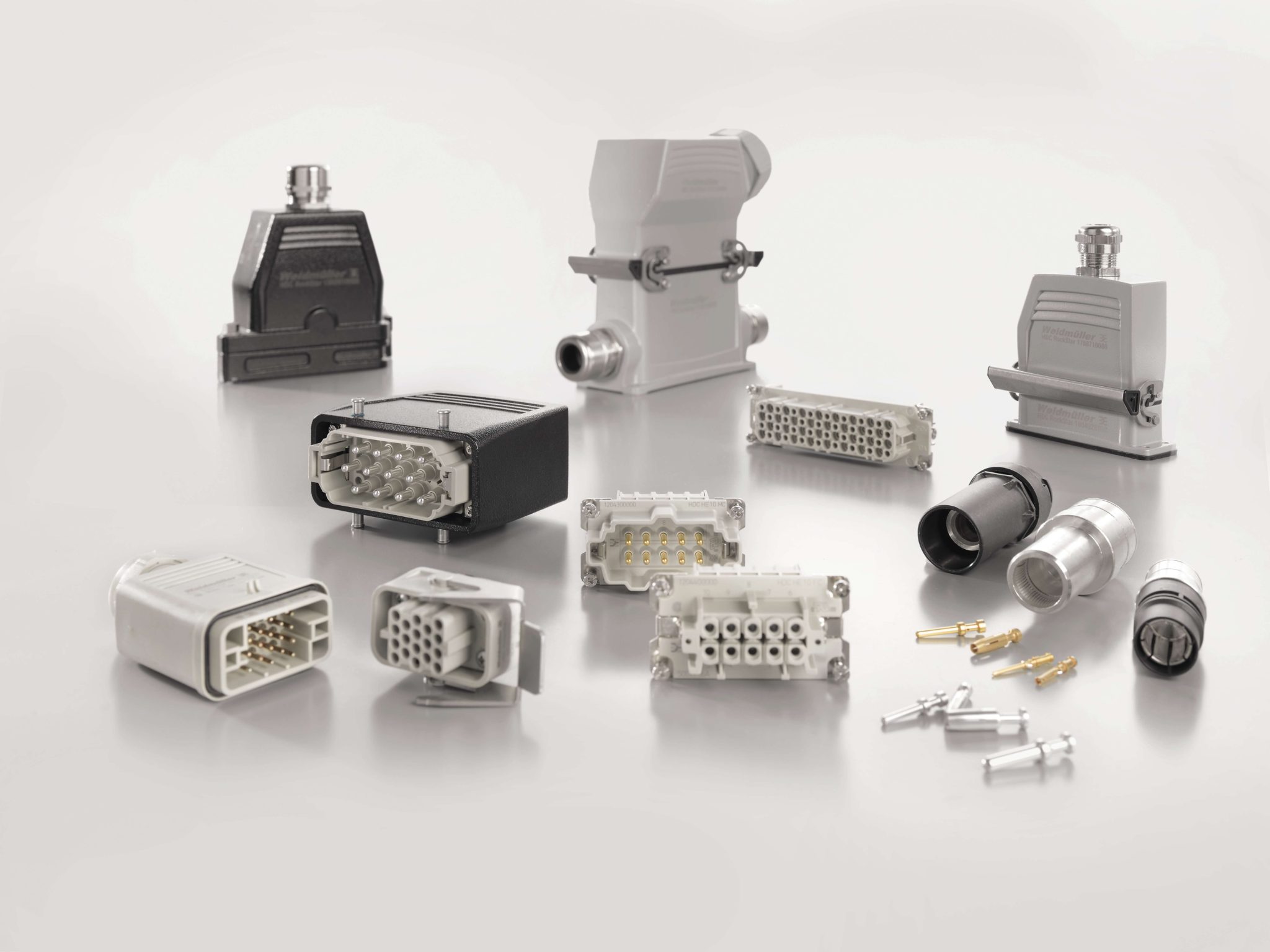- All
- Product Name
- Product Keyword
- Product Model
- Product Summary
- Product Description
- Multi Field Search
Views: 96 Author: Site Editor Publish Time: 2023-09-15 Origin: Site
Heavy duty connectors, also known as industrial connectors or multi-pin connectors, are designed to meet the demands of harsh environments and high power applications. These connectors are widely used in a variety of industrial applications, including transportation, automation, construction, and renewable energy. Here are some of the different types of heavy duty connectors and their applications:
Rectangular connectors - Rectangular connectors are versatile and widely used in various industrial applications. They have a modular design that allows for customization and flexibility in terms of the number of contacts, current ratings, and housing options. These connectors can be used for power and signal transmission in applications such as robotics, machine tools, and transportation.
Circular connectors - Circular connectors have a compact and robust design that makes them ideal for harsh environments such as military, aerospace, and renewable energy applications. They are available in a variety of sizes, contact configurations, and sealing options, making them suitable for a wide range of power and signal applications.

Heavy duty power connectors - Heavy duty power connectors are designed to handle high current loads and are used in industrial applications such as cranes, mining equipment, and renewable energy systems. They have a sturdy construction that can withstand harsh environments and high vibrations.
Ethernet connectors - Ethernet connectors are used to connect Ethernet devices in industrial applications such as automation and robotics. They have a rugged design that can withstand harsh environments and provide reliable data transmission.
Fiber optic connectors - Fiber optic connectors are used in applications that require high-speed data transmission over long distances. They are ideal for industrial automation and manufacturing processes that require precise and real-time data transfer.
Thermocouple connectors - Thermocouple connectors are used in temperature sensing applications and can withstand high temperatures and harsh environments. They are commonly used in industrial processes such as steel making and power generation.
Coaxial connectors - Coaxial connectors are used in applications that require high-frequency signal transmission such as telecommunications, broadcasting, and radar systems. They have a robust design that can withstand harsh environments and provide reliable signal transmission.
In summary, heavy duty connectors are designed to meet the demands of harsh environments and high power applications. There are many different types of heavy duty connectors available, each with their own specific applications and features. Rectangular and circular connectors are versatile and widely used in various industrial applications. Heavy duty power connectors are designed to handle high current loads, while Ethernet and fiber optic connectors are used for data transmission. Thermocouple connectors are used in temperature sensing applications, and coaxial connectors are used for high-frequency signal transmission. When selecting a heavy duty connector for a specific application, it is important to consider the operating conditions, power requirements, and the type of signal transmission required.
A terminal block is a compact, insulated base with metal contacts that lets you clamp, join, and distribute conductors without soldering. If you’ve ever routed power to a drive, brought sensor leads into a controller, or handed off field wiring to a PCB, you’ve used one. Understanding what is a term
As a Engineer ,It is very important to choose globally recognized premium terminal blocks .these manufacturersas below: Phoenix Contact, WAGO, Weidmüller, Eaton, Molex, Amphenol, Harting, and Shanye Electronics (subsidiary of Kefa Electronics). These industry leaders collectively dominate the $4.6
This article covers the technical features of spring-loaded and push-in terminals, and both the advantages and disadvantages of these technologies when it comes to installation practices, commissioning, footprint and authorisation for the North American market. Why do we need spring terminal block ?
Wiring a terminal block correctly is a fundamental skill in electrical work, ensuring safe and reliable connections. This article will help you to understand the essential steps, from preparing your wires to securing them properly within various terminal block types.ContentWhat are Terminal Blocks?R
What is terminal block ?terminal block, also known as a connection terminal, is a modular block used in electrical and electronics systems to connect and secure electrical wires or cables. It serves as a convenient and organized way to make electrical connections, whether for power distribution, sig
Terminal electronics is the key point at which a conductor from a electronic component, device or network comes to an end.Terminal may also refer to an electrical connector at this endpoint, acting as the reusable interface to a conductor and creating a point where external circuits can be connected